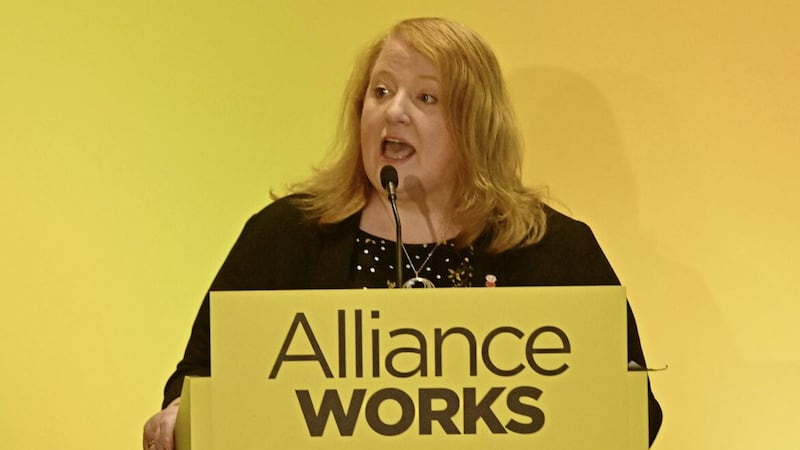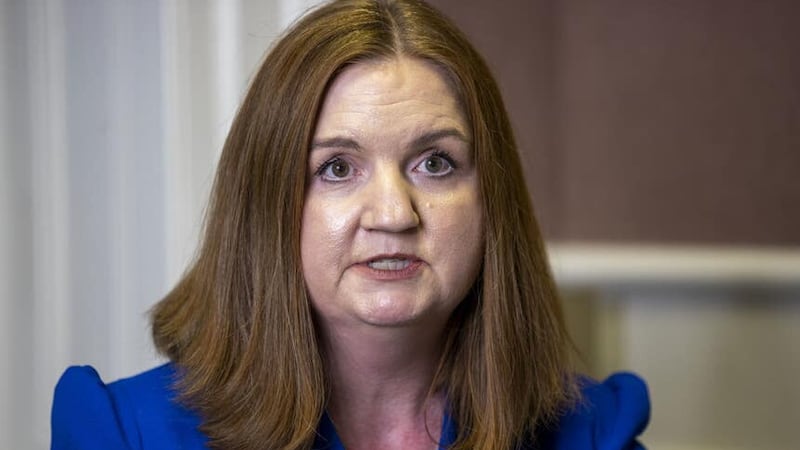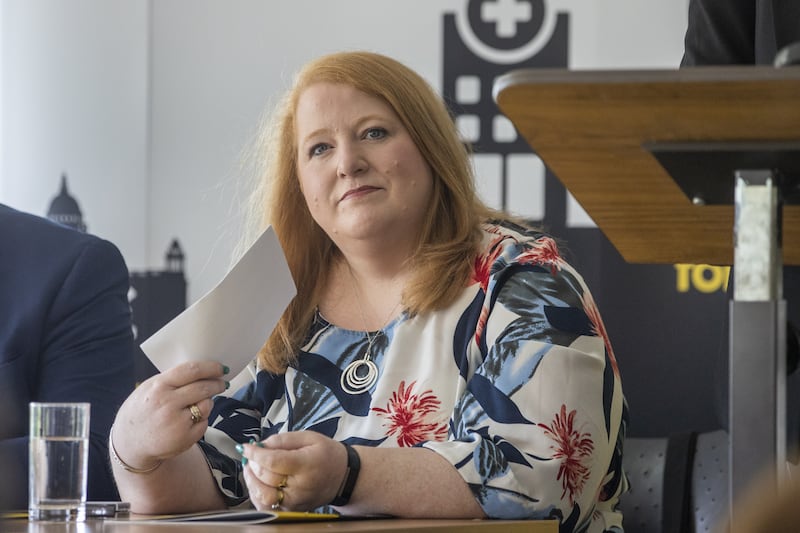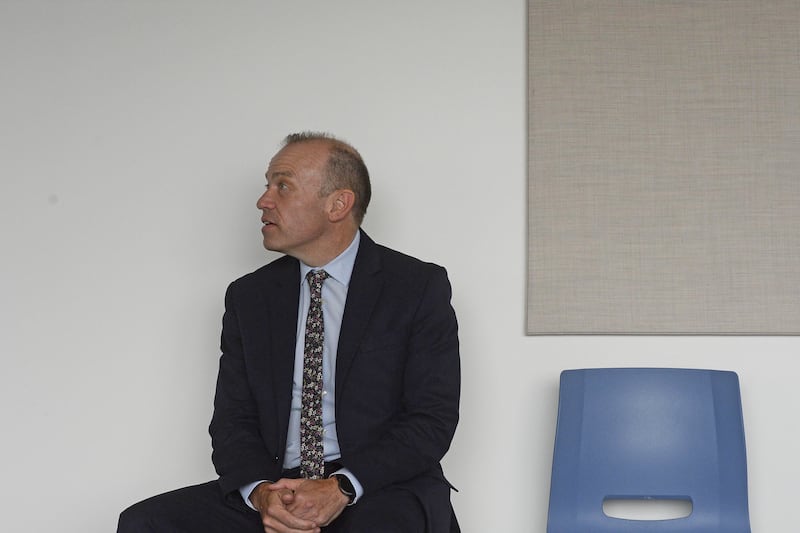THE Alliance Party has warned that it may mount a legal challenge against the "inherent inequality and discrimination" of Stormont's voting system if reform is not agreed through negotiation.
Leader Naomi Long told the party's annual conference on Saturday that the current cross-community structures introduced after the Good Friday Agreement are an "affront to democracy".
She said the assembly's "rigid designation system" discriminates against those MLAs who style themselves neither nationalist or unionist.
Alliance, which at the last election secured 17 of the Stormont's 90 seats, advocates changing the voting systems in both the assembly chamber and executive to give equal weight to those who designate as 'other'.
The party has sought legal advice on whether the existing arrangements are human rights compliant.
Read more:
[ Who are the Alliance Party of Northern Ireland (APNI)? An explainerOpens in new window ]
Mrs Long told around 400 delegates at Belfast Stormont Hotel that it wasn't the growth in Alliance's vote that made the current structures "unacceptable" but that recent gains "simply makes the inherent inequality and discrimination more glaring".
"To sit in the chamber and listen to others wax lyrical about being treated like second class citizens, when their votes count for more than ours is frankly an affront to democracy," she said.
"Not only is it not acceptable, it might well be unlawful, and conference, we are willing to put that to the test if we have to."
Urging wider reform of Stormont's structures, including jettisoning arrangements that enable the largest unionist or nationalist party to veto the establishment of an executive, Mrs Long said power-sharing was at risk of "death by a thousand collapses".
"Irrespective of whether the DUP decide that it's in their own party-political interests to return to Stormont – for we know that's all that matters to them – the current system of stop-go, up-down, ransom politics needs to end," she said.
"That is in Northern Ireland's interests and that should be the priority."
She said failure to act was "ruining people’s lives and jeopardising the Good Friday Agreement itself".
The Alliance leader said opportunities to review the institutions every five years had not been seized.
"Instead, each time our institutions have broken down, they have been subjected to patch repairs, quick fixes, designed to get them back on the road as quickly as possible, with no thought as to how long they will last or the damage those patch-ups are doing," she said.
"That the wheels keep coming off again with increasing regularity, is proof that a more significant roadworthiness check in in order."
She said the case for reform was "undisputable" but that it would be resisted by Sinn Féin and the DUP "because it provides the two main parties with vetoes and blocks that they can abuse".
Mrs Long also raised concerns about the so-called Stormont Brake element of the Windsor Framework and its potential to "create more instability and further opportunities for stand-offs and walk outs".
She said the deal agreed last week was "much better" than that signed off by Boris Johnson in 2019.
"The deal we have now is the one we might have had in 2019, had we had a sensible and diligent prime minister at the helm rather than someone who knowingly and wilfully over-promised to unionists, leaving them high and dry, but also signed up to the protocol knowing full-well that he had no intention of implementing it," she said.
"No serious renegotiation was ever going to be possible with a bad faith actor such as that in Number 10."
The East Belfast MLA said the DUP would attempt to claim that changes were secured to the protocol because it collapsed Stormont.
"However, in that respect – and I stress in that respect alone – Boris Johnson has helpfully demonstrated in his comments this week, that had he still been in charge this deal would never have been reached," she said.
"So, it was the change in prime minister and not the collapse of Stormont that made Windsor Framework possible."
Mrs Long said it was "imperative" that the threshold for use of the Stormont Brake was clearly defined in legislation, and that it was "enforceable and justiciable, rather than merely aspirational".
"Far from addressing the democratic deficit created by no longer having MEPs to help shape EU laws that apply here, this could gift a minority the ability to wage a war of attrition on Northern Ireland’s continued membership of the Single Market, against the wishes of most people here," she said.
Read more:ANALYSIS: Surging Alliance frustrated by Stormont impasse








